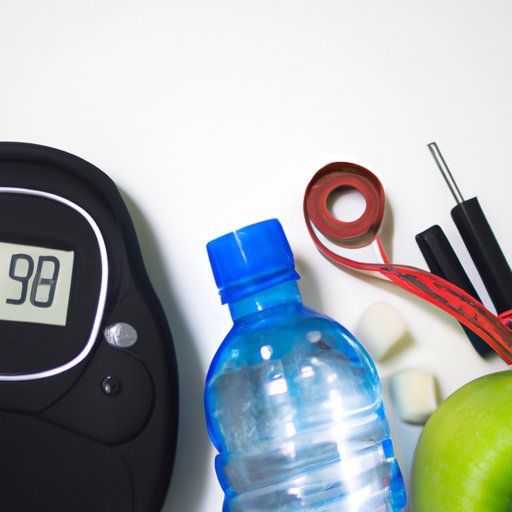
Introduction
Weight management is an essential part of managing diabetes. Diabetes is a metabolic condition that affects how your body processes glucose. When you have diabetes, your body cannot produce enough insulin or use it properly. This can lead to high glucose levels in your blood. Diabetes can also impact your weight and make it more challenging to manage. In this article, we will explore the various methods to help you lose weight with diabetes.
Start with Education
Knowing more about diabetes and its side effects on weight is crucial before starting any weight management program. Diabetes affects your metabolism and insulin response system. If you have type 1 diabetes, your body cannot produce insulin, while with type 2 diabetes, your body cannot use insulin properly. Understanding how diabetes affects your body will help you make more informed decisions while managing your weight.
Nutritious Diet
A balanced and healthy diet is essential for weight management when you have diabetes. Eating a healthy diet can help you maintain healthy blood sugar levels and lose weight. Your diet should consist of foods that are low in sugar, carbohydrates, and fats. You should consume foods that are rich in nutrients, including whole grains, vegetables, fruits, lean protein, and healthy fats.
Your suggested diet plan should contain foods that are low in glycemic index. Foods with low glycemic index values will cause your blood sugar levels to rise at a slower rate than those with high glycemic index values. Your diet plan should also include portion sizes to ensure that you consume the right amount of calories required for your body. Consulting a registered dietitian can be useful in developing a healthy diet plan.
Physical Activity
Physical activity plays a significant role in managing your weight when you have diabetes. Engaging in physical activity regularly helps to burn calories, manage glucose levels, and improve your overall health. Incorporate activities that are fun and enjoyable into your daily routine. Walking, swimming, and yoga are good examples of physical activities to consider. If you have any concerns about engaging in physical activity, talk to a healthcare professional.
Regular Blood Sugar Checking
Regular blood sugar checks are vital for weight management when you have diabetes. Your blood glucose levels indicate how different foods and activities affect you. Testing your blood sugar levels before and after meals and physical activities can help you monitor your glucose levels better. You can use this information to adjust your diet, physical activity, and insulin use to achieve healthy blood glucose levels.
Creating a Calorie Deficit
Calorie deficit means that you are consuming fewer calories than you burn. Creating a calorie deficit is crucial for weight loss. To create a calorie deficit, you need to calculate your daily calorie intake and burn. You can achieve a calorie deficit by adjusting your diet and exercise routine. A moderate calorie deficit is healthier and more sustainable than a significant calorie deficit. Consult a healthcare professional before considering a calorie deficit program.
Moderating Portion Sizes
Moderating portion sizes is an effective way to manage weight when you have diabetes. It is easy to consume too many calories if you do not monitor your portion sizes. Pre-plated meals and mindful eating are two useful techniques for moderating your portion sizes. Pre-plated meals ensure that you consume the right amount of calories, while mindful eating helps to stop overeating by allowing you to be more present while eating.
Having a Support System
Having a support system is essential for weight management when you have diabetes. A support system can include friends, family, healthcare professionals, and online communities. They provide encouragement, motivation, and advice when you need them. Support systems can also help you stay accountable, which is essential when trying to manage your weight.
Conclusion
Diabetes can significantly affect your weight, but managing your weight is essential for managing your diabetes. Starting with education, a nutritious diet, physical activity, regular blood sugar checks, calorie deficit creation, portion moderation, and having a support system can help you achieve your weight management goals. It is essential to consult healthcare professionals before making any significant changes to your diet and exercise routines.




